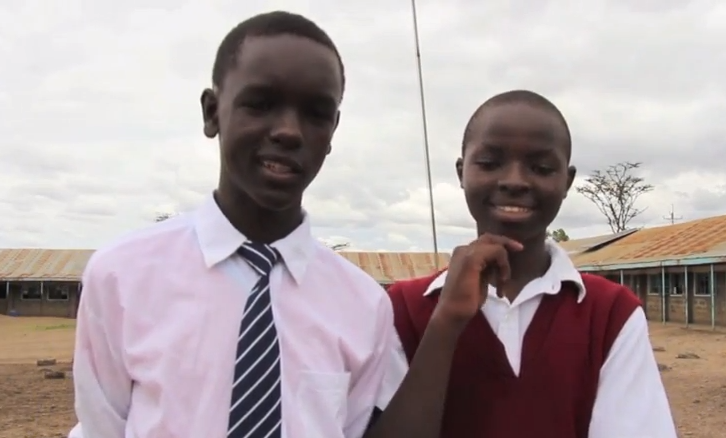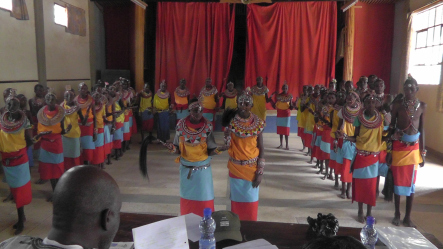April 2019 Update
http://https://youtu.be/7phd8MtyeuU
[two_third]
Age: 19
Form 4 (Grade 12) – January, 2019
School: St. Augustine Secondary – Boarder
PA-MOJA Scholarship started: 2016 – Form 1 (Grade 9)
Tribe: Samburu
Sponsoring School: Kilmer Elementary, Port Coquitlam, BC, Canada.
Samuel Kalae lives on a small farm in a village called Karandi, in the region of Ngobit. He lives with his mother, 3 sisters and 3 brothers. In 2007, 8 year old Samuel lost his father who was killed by cattle raiders in Samburu. The family was forced to leaving all their belongings and flee from their farm. His mother managed to buy a tiny plot of land in Karandi where she has managed to feed the family by growing vegetables as well as working for her neighbours as a local farm laborer. They practice what the Samburu call “a settled life” which means they are no longer pastoralists requiring the family to take their animals to different pastures in search of food and water.
In 2012, Samuel’s brother died leaving Samuel’s mother with two little girls who now live with the family. Both girls are enrolled in Primary school. As the uncle, Samuel feels responsible for his nieces and works as a laborer during school breaks to help his mother put food on the table.

Samuel is proud of many of his Samburu traditions, although it’s difficult to keep practicing them because the community of Karandi is made up of many cultures. The family still celebrates the Harvest Celebration and Circumcision Ceremonies for boys but have stopped taking part in Female Genital Mutilation (FGM). Samuel’s mother, Alice, has packed away all of the family’s traditional clothing because she wants to fit into her new way of life.

Samuel’s best memory of childhood was when he was 6 years old and his father bought the family’s first cow. “In the Samburu community,” Samuel explained, “if you don’t have a cow, you are considered extremely poor. I remember my father allowing me to graze the cow by myself. I was so proud of my family.”
Because of the PA-MOJA scholarship, Samuel is the first of his siblings to go to high school because traditional Samburu don’t value formal education. His dream is to study Law. “I want to be remembered for bringing justice to people and teaching Samburu people that there is more to life than owning grazing animals. I hope this will lead to more peaceful relationships with tribes.” He credits his mother with teaching him to respect everyone, remain morally upright, and face problems courageously. She also taught the family how to work together to help each other. Samuel’s greatest fear is losing his mother and he becomes very concerned when she isn’t feeling well.
The happiest day of Samuel’s life was the first day of high school. He never dreamed he would actually walk through the doors of a high school. He remembers vividly the day he was told the news. He was working in his garden and within two days he was in a uniform and starting school.
Samuel’s favorite subjects are English, Swahili, CRE (Christian Religious Education) and History. He has earned three special certificates at his school. One for Music, one for Public Speaking and another for Distance Running. He is also the Environment Club leader at this school. He is most proud of his improving marks. He has gone from a C- to a C+ and has a goal of
achieving an A- average this year. His greatest challenge is finding time and space to study for exams during school breaks. . Kenyan High schools start each new semester with exams in all subjects. Students are expected to study for these exams over the holidays using revision books. Samuel struggles to study for the exams because the tiny farm shack has no electricity and no space to study.
When asked what he finds beautiful: “When I’m sitting outside after we’ve had enough rain and I’m looking at the green countryside. There is food growing, everyone has a full stomach, and I’m reading a novel.”
Samuel has a message for his PA-MOJA donors: “PA-MOJA has brought me a rare chance to learn and a golden opportunity to achieve my dreams. I am so grateful to my donors and I thank them all with all my heart. Asante Sana. Thank you.”
Below: Samuel and his mother on their farm.

[/two_third]
[one_third_last]August 2018 Update ,Samuel’s comment June, 2018 [/one_third_last]


